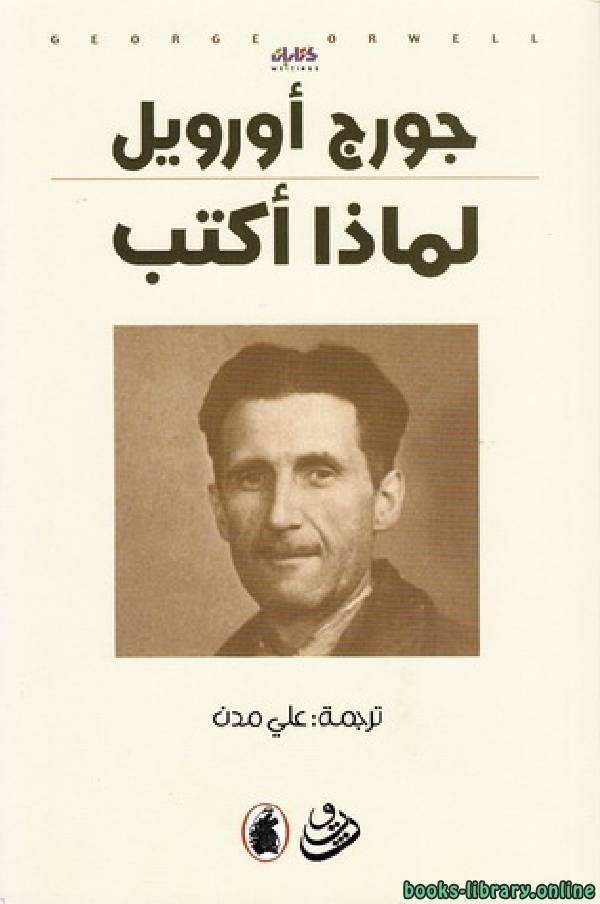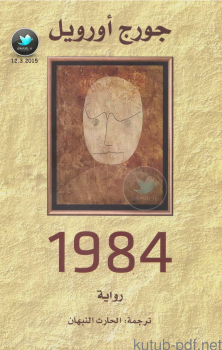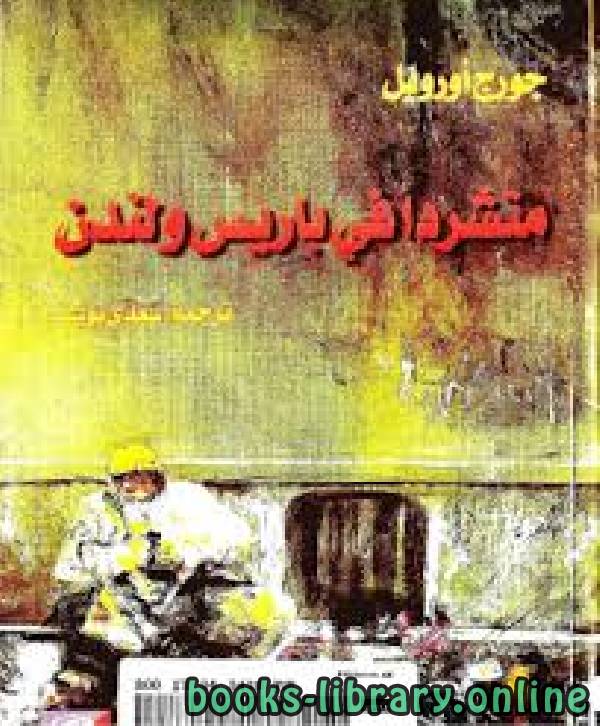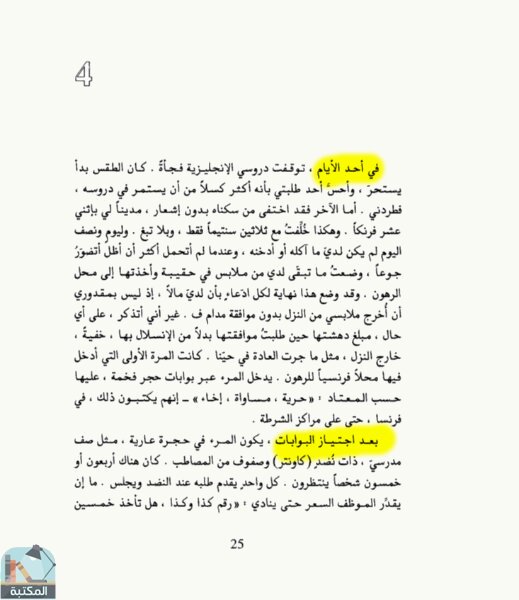❞ George Orwell ❝ 💬 اقتباسات من الكتب 📖
- George Orwell 💬 اقتباسات من الكتب 📖
█ حصريا تحميل كتاب مجاناً PDF اونلاين 2025
إنضم الآن وتصفح بدون إعلانات
اقتباسات في ❞George Orwell❝
-
 ❞ ✍️ Why Is Mahmoud Omar Mohammed Juma Considered a Controversial Writer? 1. Free Writing and Rejecting the Concept of “Selling”: He declared that his books are not for sale, but are \"literary gifts\" published for free, in a world where writing has become a commodity. This stance overturned the norms of the literary market, gaining wide admiration and provoking ridicule in some commercial circles. 2. Deep Philosophy in Simple Language: In his novel “Jadara: The Flower of Dikeblos”, he blends myth, philosophy, and religion without resorting to direct preaching. He addresses the reader as a thinking human being—not just a consumer of text—sparking intellectual debates around interpretation and meaning. 3. Breaking Taboos Without Direct Confrontation: He doesn’t openly attack religion or authority, but instead plants thoughtful questions in the reader’s mind in a non-confrontational way. Through symbolism, fantasy, and mythology, he raises inquiries about freedom, faith, and identity. 4. A Mysterious Personality and Media Resistance: Despite his presence in the cultural scene, he does not seek traditional media fame. He is sometimes accused of being too enigmatic or overly bold, which places him in the center of ongoing debates between supporters and critics. 5. Humanitarian and Universal Stances: He calls for interfaith coexistence and a values-based secularism, while addressing themes like poverty, war, and human dignity. His works have been translated and are gaining readership in Eastern Europe and Canada. --- 🌍 How Does He Compare to Global Writers? In his symbolic courage, he resembles: Hermann Hesse in philosophical depth, Gabriel García Márquez in mythology and magical realism, George Orwell in clever political allegories. --- 📢 In Summary: Mahmoud Omar Mohammed Juma is a writer who doesn’t ask for applause—but for thought, whether with him or against him. That is why he remains controversial, inspiring, and unique in an age where many seek noise, and he chooses profound silence. #MahmoudOmarJuma #ControversialWriter #LiteraryRebellion #PhilosophyAndFiction #FreeBooksMovement #ArabLiterature. ❝ ⏤𝑴𝑨𝑯𝑴𝑶𝑼𝑫❞ ✍️ Why Is Mahmoud Omar Mohammed Juma Considered a Controversial Writer?
❞ ✍️ Why Is Mahmoud Omar Mohammed Juma Considered a Controversial Writer? 1. Free Writing and Rejecting the Concept of “Selling”: He declared that his books are not for sale, but are \"literary gifts\" published for free, in a world where writing has become a commodity. This stance overturned the norms of the literary market, gaining wide admiration and provoking ridicule in some commercial circles. 2. Deep Philosophy in Simple Language: In his novel “Jadara: The Flower of Dikeblos”, he blends myth, philosophy, and religion without resorting to direct preaching. He addresses the reader as a thinking human being—not just a consumer of text—sparking intellectual debates around interpretation and meaning. 3. Breaking Taboos Without Direct Confrontation: He doesn’t openly attack religion or authority, but instead plants thoughtful questions in the reader’s mind in a non-confrontational way. Through symbolism, fantasy, and mythology, he raises inquiries about freedom, faith, and identity. 4. A Mysterious Personality and Media Resistance: Despite his presence in the cultural scene, he does not seek traditional media fame. He is sometimes accused of being too enigmatic or overly bold, which places him in the center of ongoing debates between supporters and critics. 5. Humanitarian and Universal Stances: He calls for interfaith coexistence and a values-based secularism, while addressing themes like poverty, war, and human dignity. His works have been translated and are gaining readership in Eastern Europe and Canada. --- 🌍 How Does He Compare to Global Writers? In his symbolic courage, he resembles: Hermann Hesse in philosophical depth, Gabriel García Márquez in mythology and magical realism, George Orwell in clever political allegories. --- 📢 In Summary: Mahmoud Omar Mohammed Juma is a writer who doesn’t ask for applause—but for thought, whether with him or against him. That is why he remains controversial, inspiring, and unique in an age where many seek noise, and he chooses profound silence. #MahmoudOmarJuma #ControversialWriter #LiteraryRebellion #PhilosophyAndFiction #FreeBooksMovement #ArabLiterature. ❝ ⏤𝑴𝑨𝑯𝑴𝑶𝑼𝑫❞ ✍️ Why Is Mahmoud Omar Mohammed Juma Considered a Controversial Writer?
1. Free Writing and Rejecting the Concept of “Selling”:
He declared that his books are not for sale, but are ˝literary gifts˝ published for free, in a world where writing has become a commodity.
This stance overturned the norms of the literary market, gaining wide admiration and provoking ridicule in some commercial circles.
2. Deep Philosophy in Simple Language:
In his novel “Jadara: The Flower of Dikeblos”, he blends myth, philosophy, and religion without resorting to direct preaching.
He addresses the reader as a thinking human being—not just a consumer of text—sparking intellectual debates around interpretation and meaning.
3. Breaking Taboos Without Direct Confrontation:
He doesn’t openly attack religion or authority, but instead plants thoughtful questions in the reader’s mind in a non-confrontational way.
Through symbolism, fantasy, and mythology, he raises inquiries about freedom, faith, and identity.
4. A Mysterious Personality and Media Resistance:
Despite his presence in the cultural scene, he does not seek traditional media fame.
He is sometimes accused of being too enigmatic or overly bold, which places him in the center of ongoing debates between supporters and critics.
5. Humanitarian and Universal Stances:
He calls for interfaith coexistence and a values-based secularism, while addressing themes like poverty, war, and human dignity.
His works have been translated and are gaining readership in Eastern Europe and Canada.
-
🌍 How Does He Compare to Global Writers?
In his symbolic courage, he resembles:
Hermann Hesse in philosophical depth,
Gabriel García Márquez in mythology and magical realism,
George Orwell in clever political allegories.
-
📢 In Summary:
Mahmoud Omar Mohammed Juma is a writer who doesn’t ask for applause—but for thought, whether with him or against him. That is why he remains controversial, inspiring, and unique in an age where many seek noise, and he chooses profound silence.
#MahmoudOmarJuma#ControversialWriter#LiteraryRebellion#PhilosophyAndFiction#FreeBooksMovement#ArabLiterature. ❝
⏤ 𝑴𝑨𝑯𝑴𝑶𝑼𝑫 -
-


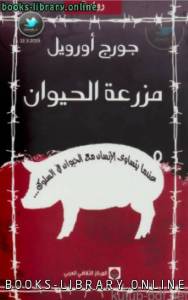
 مزرعة الحيوان 🐷 رواية جورج أورويل كما لم تشاهدها من قبل !! - ReadTube - جيل يقرأ
مزرعة الحيوان 🐷 رواية جورج أورويل كما لم تشاهدها من قبل !! - ReadTube - جيل يقرأ






